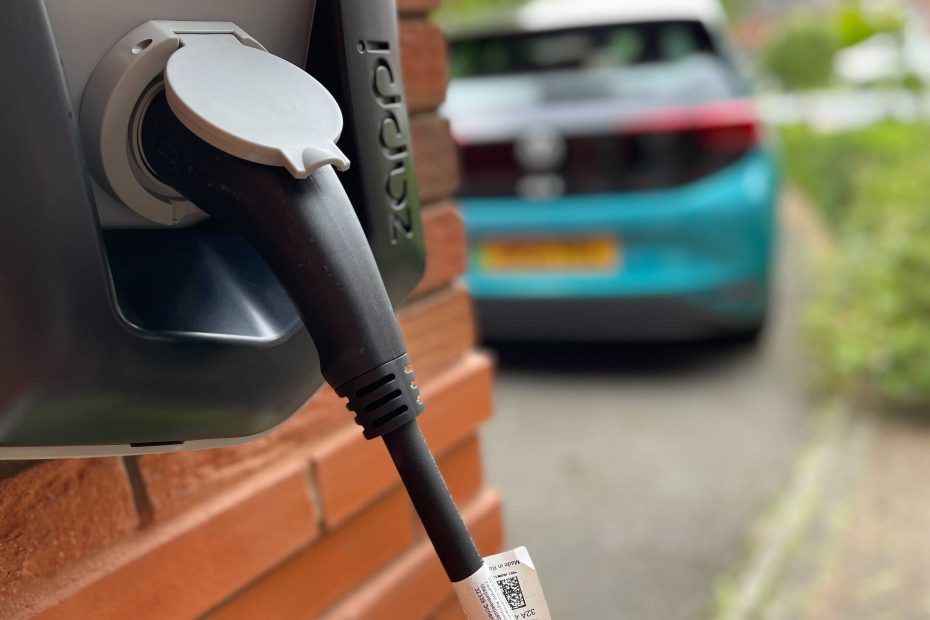Drivers of electric vehicles could save an average of £110 a year – and cut their carbon footprint by 20% – by using “smart charging” to power up their cars at the best possible times, a report by a research team involving Swansea University experts has shown.
Smart charging helps spread out demand for electricity to avoid overloading the National Grid. This is a major issue given the huge growth in the number of electric vehicles, with up to 11 million forecast to be on Britain’s roads by 2030.
Already people can get cheaper electricity by charging at certain times, usually in the early hours of the morning. But smart charging could go much further than this. For example, it could mean charging when windy weather means surplus wind power is being generated, or having your charging automatically coordinated with your neighbours.
The report is based on research by the FRED project (Flexibly Responsive Energy Delivery). Led by Evergreen Smart Power, it also involved Swansea University energy experts from the SPECIFIC Innovation and Knowledge Centre, in collaboration with myenergi, GenGame, and Energy Systems Catapult.
The team recruited 250 members of the public who already had electric vehicles and were using myenergi’s zappi charging points and software to help them charge more efficiently.
Throughout the project Evergreen managed the FRED participants’ EV charging using its smart charging software platform. The platform used artificial intelligence to shift charging times to maximise efficiency and minimise cost. Participants supported the project by providing feedback as to how smart charging affected their driving experience.
The researchers found that:
• Smart charging cuts the cost of various charges that make up the overall price of energy for consumers
• This means an overall saving of £110 a year for an average electric vehicle driver – with even bigger savings if you drive, and therefore recharge, more than average
• These savings come from various factors – for example avoiding times when network charges or energy wholesale prices are high, and switching customers to payment per half-hour rather than per hour
In addition they found that:
• Further savings of up to 45% are possible with better incentive schemes
• Smart charging reduces the carbon footprint of car charging by over 20%, providing a strong environmental incentive.
Peter Bullock from Evergreen said:
“Our research showed that smart charging using the platform can make a big difference, even where people are already charging efficiently. It cuts the cost and the carbon for cheaper, cleaner driving.
In our emerging green energy system, the energy we generate – for example through wind and solar – can be variable. Luckily, with electric cars, it is easy to be flexible with the times we consume energy. This is where smart charging is crucial, helping us create an energy system that is both low-carbon and efficient.”
Mark Spratt from the SPECIFIC Innovation and Knowledge Centre at Swansea University said:
“SPECIFIC created the Active Buildings on the Bay Campus to demonstrate how buildings that generate and store electricity can have a positive impact on the grid by managing their energy intelligently. These buildings, together with our fleet of electric vehicles, provided an ideal platform for testing the smart charging strategies of the FRED project.
The financial and carbon savings demonstrated in the FRED project are a validation of the need for Active Buildings as we make the transition to net zero.”
The project was made possible by support from the Department for Business, Energy, & Industrial Strategy’s Energy Entrepreneurs Fund. SPECIFIC’s contribution was enabled by funding from Innovate UK and the European Regional Development Fund through the Welsh Government.
